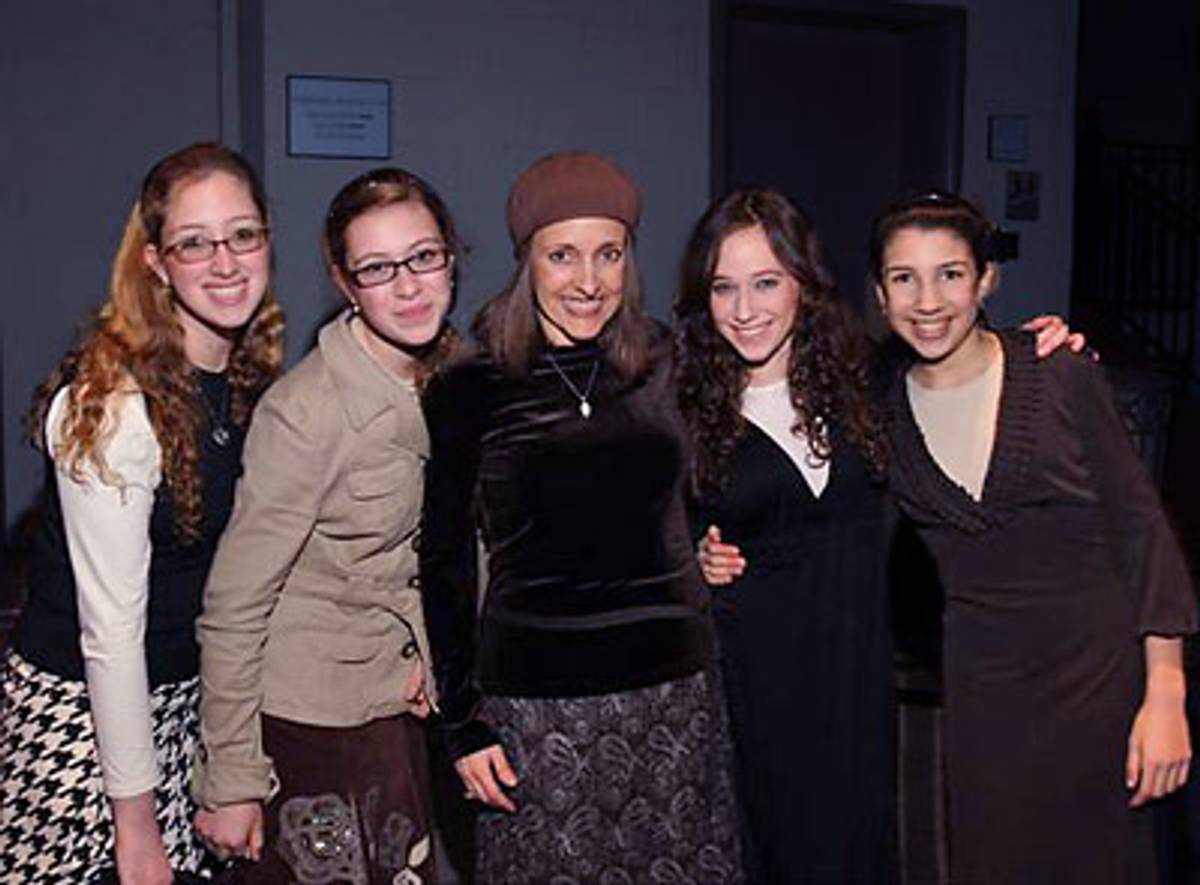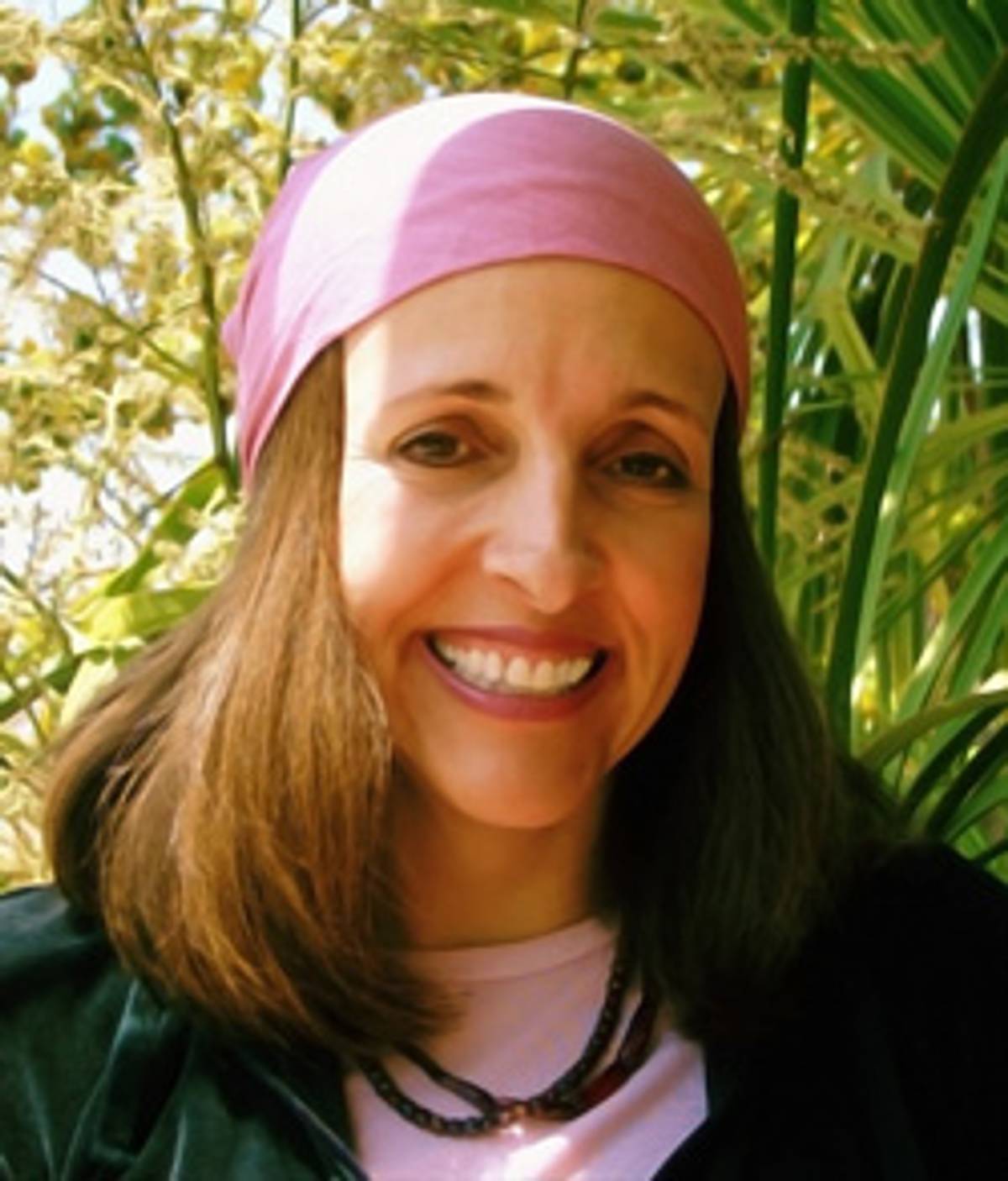Is the Jerusalem Jewish Film Festival discriminating against Jewish artists? That’s what director Robin Garbose is saying after submitting her feature A Light for Greytowers to this year’s festival, which takes place the week before Hanukkah.
The festival accepted the film earlier this month. Then things got sticky. Garbose insisted the festival screen the film only for women, based on a promise she made to her Orthodox female cast members at the beginning of production, while Daniella Tourgeman, the festival’s curator, wanted to invite the entire Jerusalem Cinematheque audience.

Garbose never hid from Tourgeman that her musical was intended just for women; it even begins with a witty animated clip expressly indicating men are not welcome. Its actresses—mostly young girls who learned to act in Garbose’s performing arts conservatory, Kol Neshama, in Los Angeles—are prohibited from singing or dancing in front of men because of halachic laws of Kol Isha.
This restriction didn’t go over too well in Israel. The Cinematheque has taken steps to welcome the Orthodox circle—they don’t screen festival films on Shabbat and they accept films with religious content—but they don’t segregate. “We can’t give up our identity,” Tourgeman says.
The festival accepted the film with the hope of reaching a mutual agreement regarding marketing, Tourgeman explains, but since that hasn’t proven possible, it was withdrawn two weeks ago. “We can’t advertise a public screening and not allow half our public to attend,” Tourgeman says. “The Orthodox have never been our public. We want to reach out, but first we have to respect those who have been faithful for years.”
Garbose doesn’t buy it. “They’re saying, ‘We can’t expand our understanding of diversity to include you,’” she says. “But these actresses live according to halacha and will only be accepted if they conform to non-religious standards.”
Set in a 19th-century Victorian orphanage (the costumes work well, after all, for the Orthodox troupe), Greytowers follows young Miriam Aronowitch and her mother, Anya, as they seek refuge in England from Czarist Russia. After her mother falls ill, Miriam lands at an orphanage, where cruel Miss Grimshaw forbids religious observance. But it’s not all darkness: there are dance numbers, and Miriam and her fellow orphans learn the power of defiance.
When Greytowers premiered last December at the Sherry Lansing Theater at the Paramount lot in L.A., with its frum stars sauntering down a red carpet (skirts sweeping the floor for reasons of modesty, not fashion), it was history in the making. So, Garbose figured, why stop there? Over past year she has screened her film to Orthodox women and girls in New York, New Jersey, Baltimore, Minnesota, and Los Angeles, where they eagerly embraced a Hollywood movie featuring people from their close-knit world promoting Torah values. (Nextbook covered a Brooklyn screening last June.) Garbose now hopes to bring the film to women in Muslim, African-American, and Mormon communities.
The Cinematheque, which is a public institution and relies on government funding, actively promotes “cross-cultural understanding through cinema and draws the most diverse constituency of any arts institution in Israel.” Based on this claim, Garbose pushed for her film, saying that it “represents thousands of Jewish women who deserve to have an artistic voice.”

The Atlanta Jewish Film Festival apparently agrees: it selected Greytowers for its festival in January. “We see it as an amazing opportunity for women and girls, not just Orthodox,” says Judy Marx, executive director of the Atlanta chapter of the American Jewish Committee, which produces the festival. “We build bridges among different national groups, including beyond our own comfort zone.” Although they’ll be marketing the film for women only, Marx stresses they “won’t have a bouncer at the door.”
So why can’t Garbose let go of Jerusalem? Before becoming Orthodox 18 years ago, she began her career in theater, teaching at Juilliard and NYU, and directing 35 plays in L.A. and New York. She then dabbled in television, directing Head of the Class and then—as a Sabbath observant director—America’s Most Wanted. The Jerusalem festival represented “the culmination of an artistic dream,” Garbose says. Also, she’s afraid of the larger consequences: “prohibiting the possibility of there ever being any truly frum art.”
Sara Trappler Spielman is a freelance writer in Brooklyn.
Sara Trappler Spielman is a freelance writer in Brooklyn.